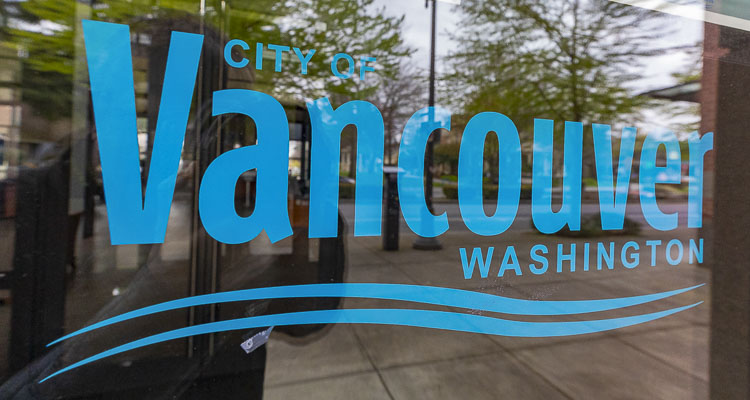
An unprecedented amount of funding for greenhouse gas reduction and climate resiliency projects will be available in 2023 via the federal Inflation Reduction Act of 2022
VANCOUVER – On Monday (Dec. 5), the Vancouver City Council approved a resolution to adopt the city’s Climate Action Framework (CAF), a blueprint to reduce greenhouse gas emissions and build resiliency to climate change impacts. The CAF defines initial strategies and actions necessary to achieve the following greenhouse gas (GHG) reduction goals:
- An 80% reduction in GHG emissions by municipal operations by 2025
- An 80% reduction in GHG emissions by the Vancouver community by 2030
- Carbon neutrality by both municipal operations and the Vancouver community by 2040
“Our ambitious climate-neutrality targets require immediate action, adopting this Climate Action Framework now rather than later is a necessary step forward,” said Mayor Anne McEnerny-Ogle. “We can’t wait, we have to start protecting our community now.”
An unprecedented amount of funding for GHG reduction and climate resiliency projects will be available to local jurisdictions in 2023 via the federal Inflation Reduction Act of 2022, and adoption of the CAF makes the city eligible to apply for that grant funding.
“I appreciate staff, this council and our former colleagues who also participated in setting these goals for us,” said Councilor Ty Stober. “This is a day that I have been waiting for my entire seven years on council, and I couldn’t be more excited that we’ve come this far.”
“Vancouver’s Climate Action Framework translates our concern with damage to our climate into effective action,” said Councilor Diana Perez. “This is good for the city of Vancouver, and it benefits our children, our neighbors, and future generations. We must inspire hope in agencies, in people and in organizations across the city and in this region.”
Adoption of the CAF also:
- Establishes strategies to protect vulnerable communities such as low-income people, communities of color, people with health issues, the elderly, young people, and unhoused people from the impacts of climate change.
- Provides needed guidance as staff approach efforts such as the update of the city’s Strategic Plan and the Comprehensive Plan.
The city co-developed a robust list of strategies and actions with community partners through surveys, roundtable meetings, one-on-one meetings with individual community members and stakeholder groups, and multiple rounds of review.
“The adoption of this Climate Action Framework serves as a launch point for putting strategies into play that will help define further next steps and future targets for achieving the city’s GHG reduction goals,” said city Senior Policy Analyst Rebecca Small. “It is a living document, so it is up to us to keep it alive, growing and fed with the latest science and innovations as they become available to us.”
Approval of the CAF does not directly result in a budget impact. Implementation of individual actions in the CAF will be included in department budget requests that come before Council for review and approval, and over the long-term implementation may require additional budget resources.
Information provided by city of Vancouver.
Also read:
- WA Senate votes to set a 10% limit on annual rent increasesThe Washington Senate has approved a 10% annual rent increase cap as part of a controversial bill that now heads back to the House for final approval.
- Opinion: Employers shouldn’t pay workers not to work: Paying people to strike should be a union’s jobElizabeth New of the Washington Policy Center argues that Senate Bill 5041 would burden employers and taxpayers by using unemployment funds to pay striking workers instead of requiring unions to support their members.
- Matilda The Musical opens tonight at Ridgefield High SchoolRidgefield High School Theatre opens its six-performance run of Matilda the Musical tonight, celebrating student talent through this energetic and inspiring stage production.
- Clark County beginning installation of upgraded traffic signals in mid-AprilClark County will begin upgrading multiple traffic and pedestrian signals in mid-April to improve safety, accessibility, and transportation technology.
- Hiring event at WorkSource Vancouver on April 16WorkSource Vancouver will host a free hiring event on April 16 with opportunities to meet local employers and apply for a wide range of jobs.
- Clark County and The Cowlitz Indian Tribe host open house April 24Clark County and the Cowlitz Indian Tribe will host an April 24 open house to share draft restoration and trail plans for the Gordy Jolma Family Natural Area.
- Congresswoman Gluesenkamp Perez announces town halls in Lewis and Clark countiesRep. Marie Gluesenkamp Perez will hold town halls in Clark and Lewis counties to hear from constituents and discuss congressional priorities.












Chasing unicorns and pixie dust.
Just wish the City would put some real effort into street maintenance, picking up litter, right-of-way weed/grass mowing, removing all the “gutter cleaning” and related signs found on all our streets, removing all the homeless camps (garbage dumps), and enforcing traffic laws (esp. moving violations such as speeding, cell phone usage, erratic driving).
You know… just the basic stuff that we see every day that is never addressed so we tune it out and stop noticing it. But it’s still there, and the City continues to turn a blind eye to it all.